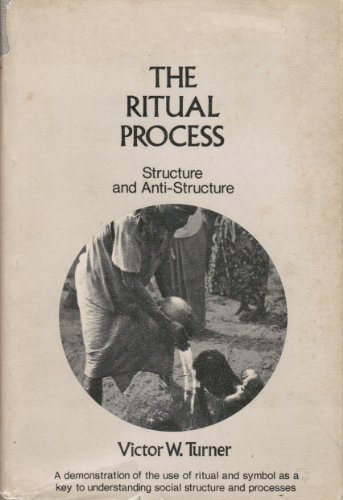Stefan Helmreich: An Anthropologist Underwater: Immersive Soundscapes, Submarine Cyborgs, and Transductive Ethnography (2007)
Filed under paper | Tags: · anthropology, anthropology of sound, cybernetics, cyborg, ethnography, hearing, immersion, listening, media, noise, science, sound, sound studies, transduction, water

“In this article, I deliver a first-person anthropological report on a dive to the seafloor in the Woods Hole Oceanographic Institution’s three-person submersible, Alvin. I examine multiple meanings of immersion: as a descent into liquid, an absorption in activity, and the all-encompassing entry of an anthropologist into a cultural medium. Tuning in to the rhythms of what I call the “submarine cyborg”—“doing anthropology in sound,” as advocated by Steven Feld and Donald Brenneis (2004)—I show how interior and exterior soundscapes create a sense of immersion, and I argue that a transductive ethnography can make explicit the technical structures and social practices of sounding, hearing, and listening that support this sense of sonic presence.” (Abstract)
Published in American Ethnologist 34(4), 2007, pp 621-641.
PDF (from the author, updated on 2016-8-25)
Comment (0)Dariusz Jemielniak: Common Knowledge? An Ethnography of Wikipedia (2013/2014) [Polish, English]
Filed under book | Tags: · anthropology, collaboration, ethnography, floss, free software, knowledge, knowledge production, peer production, software, trust, web, wikipedia

“With an emphasis on peer–produced content and collaboration, Wikipedia exemplifies a departure from traditional management and organizational models. This iconic “project” has been variously characterized as a hive mind and an information revolution, attracting millions of new users even as it has been denigrated as anarchic and plagued by misinformation. Has Wikipedia’s structure and inner workings promoted its astonishing growth and enduring public relevance?
In Common Knowledge?, Dariusz Jemielniak draws on his academic expertise and years of active participation within the Wikipedia community to take readers inside the site, illuminating how it functions and deconstructing its distinctive organization. Against a backdrop of misconceptions about its governance, authenticity, and accessibility, Jemielniak delivers the first ethnography of Wikipedia, revealing that it is not entirely at the mercy of the public: instead, it balances open access and power with a unique bureaucracy that takes a page from traditional organizational forms. Along the way, Jemielniak incorporates fascinating cases that highlight the tug of war among the participants as they forge ahead in this pioneering environment.”
Polish edition
Publisher Poltext, Warsaw, 2013
ISBN 9788375612851
376 pages
English edition
Publisher Stanford University Press, 2014
ISBN 0804789444, 9780804789448
312 pages
Review (Piotr Konieczny, The Signpost, 2014)
Review (Forbes, George Anders, 2014)
Życie wirtualnych dzikich: netnografia Wikipedii (Polish, trans. Wojciech Pedzich, 2013)
Common Knowledge? An Ethnography of Wikipedia (English, 2014)
Victor Turner: The Ritual Process: Structure and Anti-Structure (1969–) [EN, PT, ES, DE, CZ, PL]
Filed under book | Tags: · anthropology, community, ethnography, liminality, ritual

“In The Ritual Process, Victor Turner examines rituals of the Ndembu in Zambia and develops his now-famous concept of “Communitas.” He characterizes it as an absolute inter-human relation beyond any form of structure.
The Ritual Process has acquired the status of a small classic since these lectures were first published in 1969. Turner demonstrates how the analysis of ritual behavior and symbolism may be used as a key to understanding social structure and processes. He extends Van Gennep’s notion of the “liminal phase” of rites of passage to a more general level, and applies it to gain understanding of a wide range of social phenomena. Once thought to be the “vestigial” organs of social conservatism, rituals are now seen as arenas in which social change may emerge and be absorbed into social practice.
As Roger Abrahams writes in his foreword to the revised edition: “Turner argued from specific field data. His special eloquence resided in his ability to lay open a sub-Saharan African system of belief and practice in terms that took the reader beyond the exotic features of the group among whom he carried out his fieldwork, translating his experience into the terms of contemporary Western perceptions. Reflecting Turner’s range of intellectual interests, the book emerged as exceptional and eccentric in many ways: yet it achieved its place within the intellectual world because it so successfully synthesized continental theory with the practices of ethnographic reports.””
First published by Aldine Publishing, New York, 1969
Publisher Cornell University Press, Ithaca, NY, 1991 (Seventh printing)
ISBN 0801491630
213 pages
Review (Theodore Schwartz, American Anthropologist, 1972)
Review (Anthony Graham-White, Educational Theatre Journal, 1975)
Review (Volker Barth, FQS, 2002, in German)
The Ritual Process: Structure and Anti-Structure (English, 1969/1991)
O processo ritual: Estrutura e antriestrutura (Portuguese, trans. Nancy Campi de Castro, 1974)
El proceso ritual: Estructura y antiestructura (Spanish, trans. Beatriz García Ríos, 1988)
Das Ritual: Struktur und Anti-Struktur (German, trans. Sylvia M. Schomburg-Scherff, 1989/2000)
Průběh rituálu (Czech, trans. Lucie Kučerová, 2004, no OCR, added on 2014-8-13 via Michal, updated on 2016-9-18)
Proces rytualny: Struktura i antystruktura (Polish, trans. Ewa Dżurak, 2010, updated on 2016-9-18)
See also Turner’s From Ritual to Theatre: The Human Seriousness of Play, 1982. (added on 2014-2-25)
Comment (0)
